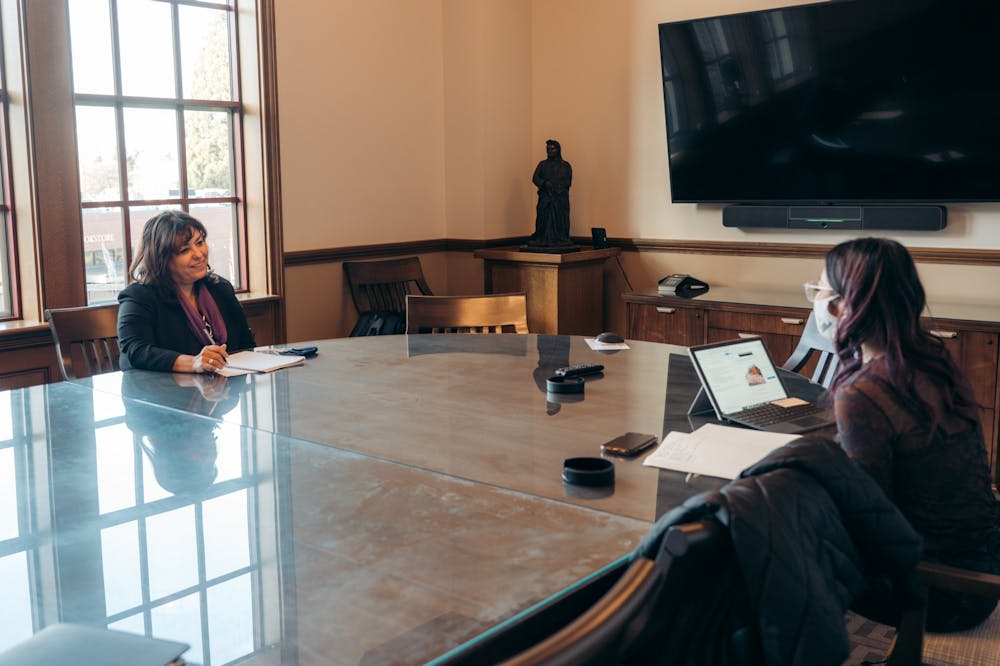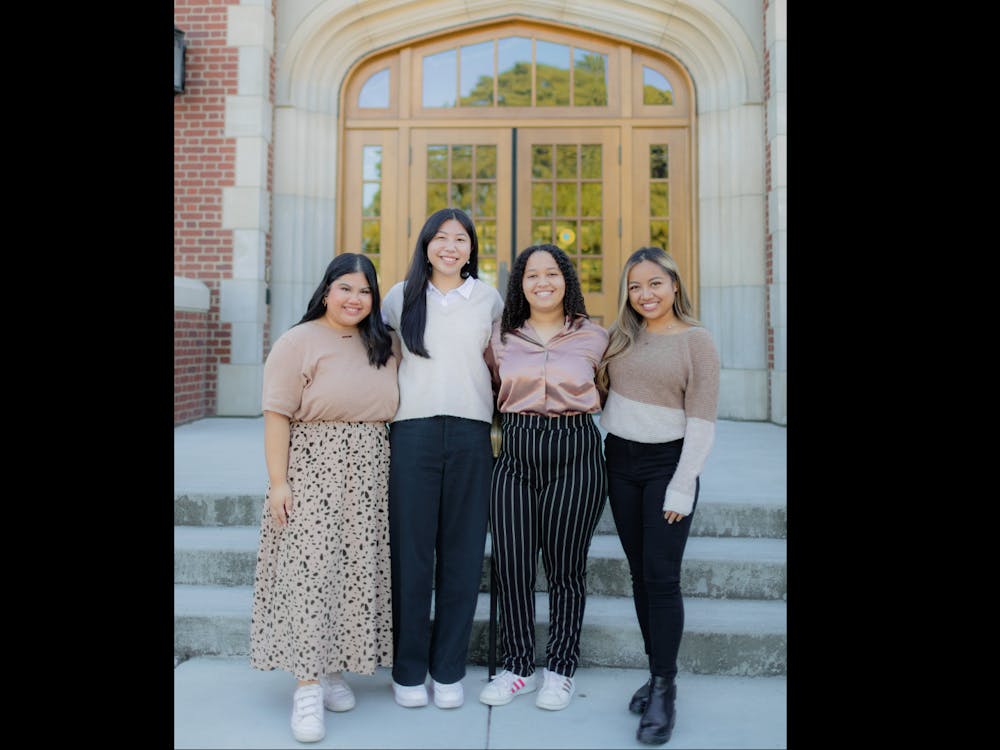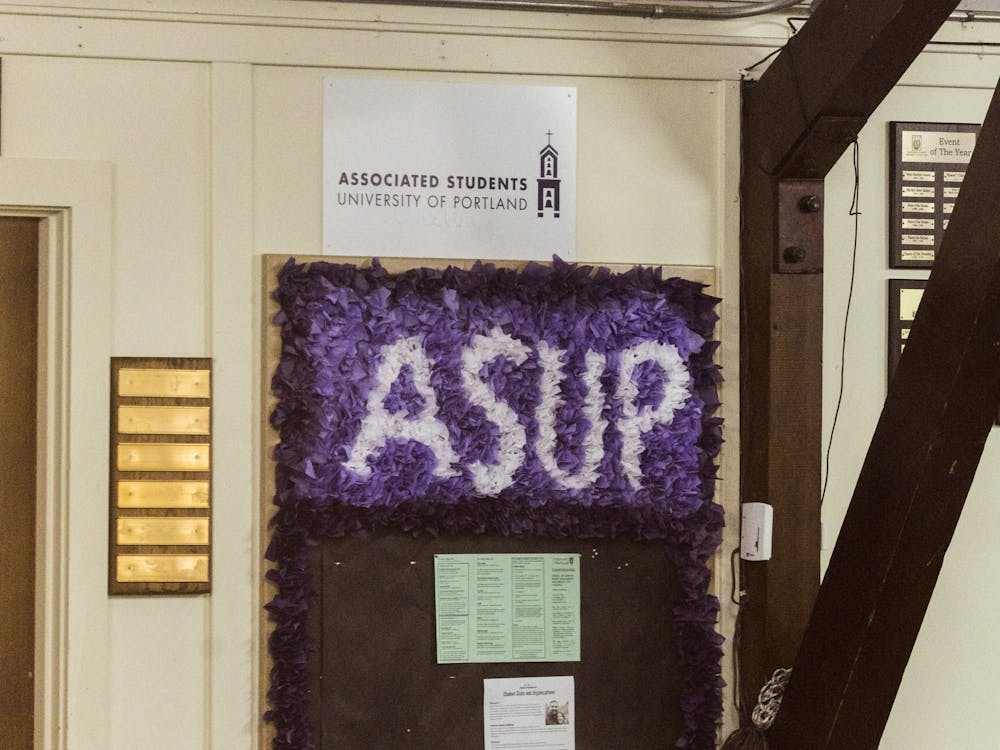The anticipated report from Diversity, Equity, Inclusion and Justice (DEIJ) consultant Elizabeth Ortiz was released on March 10.
The report listed several recommendations such as budget changes to increase financial support for DEI work, a salary equity analysis to ensure competitive salaries and yearly reports conducted for the school assessing DEI progress, and "appointing a director to facilitate DEIJ programs and initiatives."
Ortiz anonymously interviewed nearly 80 members of the community in November, including students, faculty and staff. Many reported that the climate at UP was not inclusive for minority groups such as LGBTQ+ and BIPOC individuals.
This led to Ortiz’s list of 10 recommendations for Acting President Herbert Medina and Associate Provost for International Education, Diversity and Inclusion Eduardo Contreras to take into consideration to help address the responses.
Here is a list of other recommendations made in the report:
Start DEI training for students, faculty, staff and administration.
Develop consistent hiring procedures and bias training for hiring committees.
Create an online bias and discrimination reporting system.
Develop support for students with disability accommodations and members of minority groups.
Develop support for staff and faculty members that are a part of the BIPOC and LGBTQ+ community.
Request DEI implementation plans from each unit of the University.
Work on DEI issues alongside the Congregation of Holy Cross in order to build a cohesive union between the groups.
The report included abbreviated quotes from some of those who were interviewed.
“When you speak out, you are micro-aggressed,” a faculty member is reported saying. “You are told you are disruptive and a troublemaker.”
“When we don't have adequate training, [DEI] training falls on students,” a staff member said in the report. “We do not have the capacity to fill the need.”
The investigation was sparked by an op-ed written by former Vice President for Human Resources Sandy Chung that detailed her experience as a woman of color at UP. Chung’s op-ed pushed the dialogue surrounding DEI issues on campus, and with the departure of psychology professor Sarina Saturn and Coordinator for Diversity and Inclusion Programs Yuri Hernandez Osorio, the conversation of DEI at UP continued.
College campuses across the nation are building up their DEI programs to reflect the needs of their communities. Some high profile universities have made commitments to DEI — Yale recently unveiled a five-year plan to promote diversity and inclusion across their campus, as reported by Yale News. Others have already been working through strategic plans for inclusion, like University of Michigan, which is now drafting its second five-year strategic plan, according to The Michigan Daily.
In the context of UP, a smaller liberal arts college, US News produced a comprehensive list based on 2020 undergraduate information of universities in the west regional area ranking the racial and ethnic diversity on the campus. UP ranked 0.64 on a scale of zero to one, with one being a more diverse student body. This can be compared to Lewis and Clark college, another Portland liberal arts school, which ranked 0.48.
Despite being a predominately white institution, UP has a significant number of diverse students and staff that seek support from DEI staffing and programs. The freshman class of 2025 is 54% students of color, the highest percentage UP has seen so far. In the fall of 2021, 47% of the student body were students of color.
“The [Office of Institutional Diversity, Equity and Inclusion] staff are awesome, but they don't have the power or resources,” Ortiz reports an anonymous staff member as saying. “[OIDEI] has a small fish budget, [OIDEI] is a new initiate that includes DEI work, but with no funding, staff, and people who are compensated for their time.”
Administration has not yet addressed the recommendations, though did thank Ortiz for the report and acknowledge her reporting on DEI matters.
“We acknowledge that the report is largely shaped by members of our community that met with Dr. Ortiz and who voiced their concerns and observations about where our community is (and is not) on DEIJ matters,” Medina and Contreras said in the email.
UP will be hosting a Town Hall on March 17 from 4-5:30 p.m. in the Dundon Berchtold Hall Brian Doyle Auditorium or on Zoom with Ortiz and members of the President’s Leadership Cabinet. More information on that event can be found here.
Kate Cuadrado is the Sports Editor for The Beacon. She can be reached at cuadrado24@up.edu.
Austin De Dios contributed to this story. He can be reached at dedios22@up.edu.








